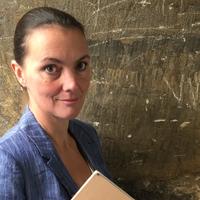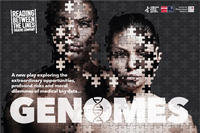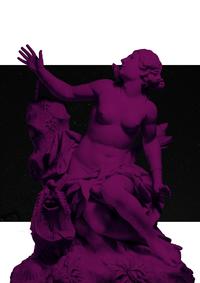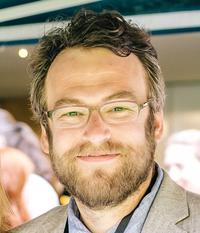TORCH Theatres Seed Fund: Award Winners Announced
TORCH is delighted to announce the first Theatres Seed Fund award winners. Funding was allocated to four innovative projects proposed by researchers from the divisions of Humanities, Medical Sciences and Social Sciences and a wide range of partners from the performing arts.
The Theatres Seed Fund will re-open for applications soon – sign up to the TORCH newsletter to hear more!

Professor Suzanne Aspden - Concepts of immersion at Waterperry Opera Festival
It's currently fashionable to talk about ‘immersion’ across the arts, yet its conceptualisation and application vary markedly from music to plastic arts to the theatre. The purposes of ‘'immersive’ arts (beyond the term's fashionable attractiveness) are also little considered. For opera, the concept of immersion presents particular technical difficulties to do with the demands of live vocal and instrumental performance. Nonetheless, at least two companies now offer ‘immersive’ opera. One of these is the newly formed Waterperry Opera Festival, which perform in the grounds and house of Waterperry in Oxfordshire. Engagement with the company over the duration of their 4-day Festival (25-28 July 2019), surveying audiences at all productions, and conducting public talks with composer Jonathan Dove (25 July), young artists (2 talks, 26 & 27 July) and other opera practitioners (28 July) will stimulate ideas and discussion for the company and provide a basis for investigation into the meaning and effectiveness of concepts of 'immersion' for my research.
Dr George Busby - GENOMES: a play about the future use of data in medicine

Dr George Busby will use TORCH funding to further develop Genomes, a play that explores how data and genomics might impact the future of healthcare. Building on a draft script written and performed in 2018, playwright Beth Flintoff will update the story through conversations with George and colleagues across the Department of Medicine as well as with patient groups. Through these interactions, researchers will be able to understand how non-specialists perceive their work, what they think the most important scientific and ethical principles behind their work are, as well as have the opportunity to advance their own thoughts on future through theatre. In collaboration with theatre company Reading Between the Lines, the team will also produce a short promotional film which they hope will help to get the play booked at a national theatre.

Hannah Greenstreet - The Andromeda Project
The Andromeda Project seeks to research through practical theatre-making how fragmentary Greek tragedy can be adapted to speak to contemporary audiences and concerns. Engaging with current research in Classics on the fragment, our research explores the potential of the fragment to queer established theatrical forms and stage historically underrepresented LGBTQ+ narratives. We will partner with Pegasus Theatre, director Charlotte Vickers and dramaturg Frey Kwa Hawking to develop a performance for young people aged 14+ based on a queer reimagining of Euripides' tragedy Andromeda.
This project brings together Oxford researchers in Classics, Martina Astrid Rodda, who is producing a new translation of Euripides' play, and Dr Marchella Ward, who researches the literary reception of Greek tragedy, and English, Hannah Greenstreet, who is writing the adaptation and researches feminist theatrical forms. The practice-as-research methodology we will adopt provides an alternative approach to traditional philological methods of working with fragments in Classics. Rather than filling lacunae and finding definitive answers before entering the rehearsal room, having actors enact and improvise around Euripides' fragments will allow us to embrace ambiguities in the source material and experiment with alternative interpretations of the text.
A work-in-progress version of the performance will be shared as part of Amplify festival at Nottingham Playhouse on 19th October. More information here: https://www.nottinghamplayhouse.co.uk/whats-on/drama/andromeda-and-me/
Dr Peter Hommel - The Performance of Production

The first use of metals by human society is often presented as a major transition in human history, the beginning of a new age of experimentation with the material world, sparking irrevocable changes in the architecture of ancient society. But what makes metals so special? Is too much emphasis placed on notions of progress, process and proto-science in our discussions of the past?
This project brings together specialists in ancient technologies from School of Archaeology (Dr Peter Hommel and Dr Peter Bray), experts in heritage communication (Dr Rebecca Wragg Sykes) and theatre professionals from the Oxford Playhouse (Zeb Turner-Johnson and James Thearle) to share knowledge and experience. The aim of the project is to better understand the performative aspects of ancient production, to consider how the value of materials (and the value of the people who made them) was shaped by acts of production, use, and deposition, and to explore the potential of these themes as a starting point for creative collaboration.
In Wytham Woods, the team will share practical experiences of primary metallurgy—the sounds, sights and scents of smelting— and discuss how the magic of production could be effectively translated onto the stage and made meaningful for a modern audience. These discussions will form the basis of a second phase of meetings, in which the team will work to develop outline concepts with creative input from theatre makers and professional advice from expert fundraisers.
Further funding will be required to realise these concepts on the stage, but this project will establish a strong connection between the School of Archaeology and the Oxford Playhouse and lay the foundations for an exciting new phase of collaboration between the performing arts and the social sciences.


